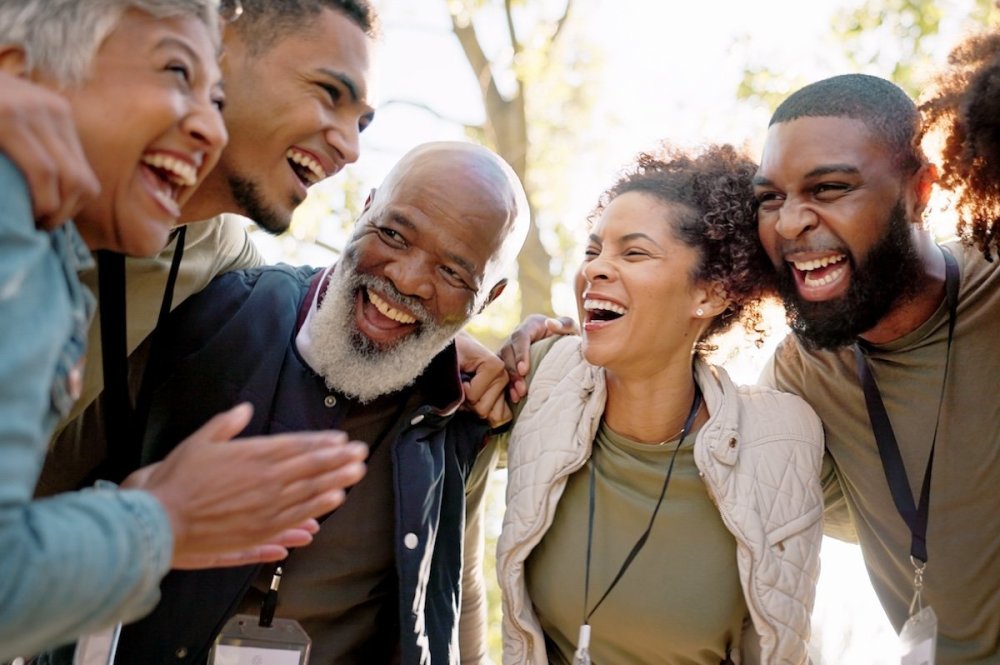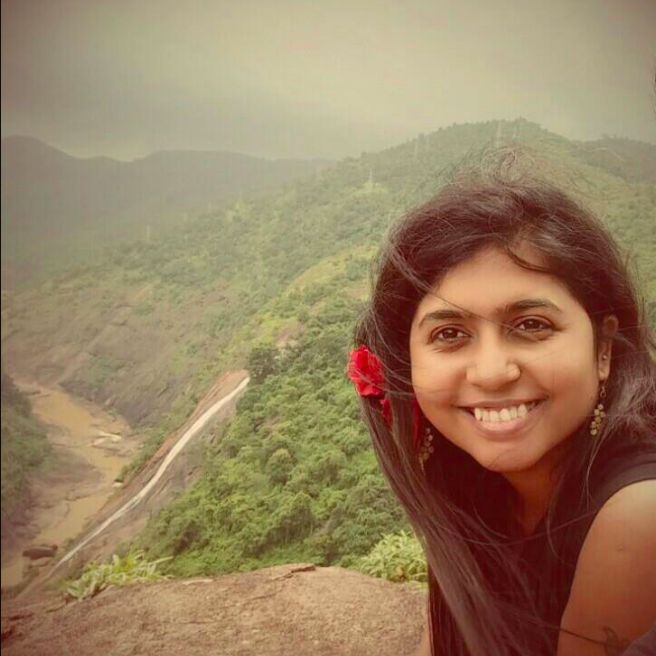What is the difference between joy and happiness? Sonia Vadlamani explores the meaning of each emotion and shares tips for cultivating joy and lasting happiness in our lives.
Most of us regard happiness and joy as interchangeable, assuming that both terms mean exactly the same thing. So, does this mean you’re feeling joyous when you’re happy and vice versa? Not quite. While joy and happiness are both positive emotions, they differ in how we experience them and the role they play in our lives.
While this may seem confusing, let's try to clarify the difference between joy and happiness – and the similarities as well – and explore whether it's possible to experience both emotions simultaneously.
So, what exactly is joy?
Joy is a profound, innate emotion that is conceptually on the same plane as other positive emotions like happiness, elation and gladness, but is rooted in a sense of purpose, meaningful connections, and heightened empathy. Indeed, individuals who experience sympathetic or appreciative joy tend to have greater life satisfaction and a deeper sense of inner peace.
And how do we truly define happiness?
Happiness is a state that many of us strive to achieve, yet its definition varies from person to person. Positive psychology researcher Sonja Lyubomirsky describes happiness as “the experience of joy, contentment, or positive well-being, combined with a sense that one’s life is good, meaningful, and worthwhile.”
It’s helpful to remember that the answers for joy vs happiness aren’t the same for everyone. This is because the framework of happiness for each of us is shaped by where we grew up, how we’ve lived, our culture, and unique life experiences. As a result, each of us may describe happiness and how we pursue it in our own distinct way.

Joy ride: journeying to happiness
However, we often place the onus of happiness on an external cause – waiting for a favourable event, circumstance or person – to make it happen. For me, it was usually, “I’ll be happy when I finally visit Paris,” or “if I ever meet my favourite Bollywood star in person,” or “when I can get a salary hike.” In other words, many peopl view happiness is future-oriented, tied to chance, and dependent on conditions beyond our control.
What's the difference between joy and happiness?
Happiness often relies on the people, events, situations in our lives. We constantly hope and expect these events, people and circumstances to align with our expectations, believing that this will result in happiness.
“Joy is a profound, innate emotion that is rooted in a sense of purpose, meaningful connections, and heightened empathy.”
When it comes to joy vs happiness, it helps to know that while happiness is largely dependent on external circumstances, joy is a deeper, more intrinsic feeling. Joy can be seen as the fulfillment we receive from our sense of purpose and leading a meaningful life, whereas happiness is a fleeting emotion tied to favourable outcomes.
Joy versus happiness: the psychology
Dr Martin Seligman, widely regarded as the father of positive psychology, describes happiness as a sum of three distinct components:
- Pleasure, or the sensory experiences consisting of feelings like excitement and satisfaction.
- Engagement, or deep involvement in an activity that allows you to achieve flow state – a feeling of complete involvement and enjoyment.
- Meaning, or having a sense of purpose in life that results in a feeling of fulfillment.
This indicates that genuine happiness goes beyond momentary pleasure or external circumstances – it’s a balanced, lasting state of being that arises from these three components working in tandem. With this perspective, true happiness begins to resemble joy, narrowing the scope for a joy vs happiness contention.
Is it possible to feel joy and happiness simultaneously?
Indeed, it's possible to feel joy and happiness at the same time. Interestingly, joy can also coexist with grief or sorrow, given the emotional complexity humans are capable of.
MORE LIKE THIS:
- Discover the 10 Keys to Happier Living
- Cherophobia: the Fear of Happiness Explained
- Happiness: Why It's An Inside Job
“Having moments when we feel joyful and happy, savouring that, and deeply engaging with what you care about might actually be a better ideal than expecting high and unchanging amounts of joy,” says psychology professor Dr Erik Nook, who also directs the Logic of Emotion Lab at Princeton.
5 reliable ways to cultivate joy and happiness
We now understand the difference between joy and happiness, but what if we could nurture happiness and joy in our lives at the same time?
A 2022 study by Julia Krasko et al. found that the likelihood of achieving lasting happiness – and thereby joy and a high level of well-being – increase significantly when we pursue the multiple aspects of happiness simultaneously.
Here are some ways to cultivate lasting happiness and fulfill a sense of purpose in our lives:
1. Develop a positive attitude
In today’s fast-paced digital world, it’s easy to fall into negative patterns like the comparison trap and self-limiting thoughts. However, positive thinking encourages us to look at the brighter side in every situation and regard adversity as a stepping stone toward growth.

Meaning relationships cultivate joy
A 2014 study suggests that prioritizing positivity can be an effective approach to pursue happiness. By consciously reframing our perspective and incorporating playfulness, when life gives us lemons we can practise so-called “lemonading”, thus turning difficult times into prospects for resilience and joy.
2. Invest in meaningful relationships
An ongoing Harvard study, which began in 1938 during the Great Depression, concludes that more than fame and money, it’s embracing community and being in close relationships that makes us truly happy. “Loneliness turns out to be toxic,” explains Dr Robert Waldinger, the fourth director of this study.
Indeed, the quality of our relationships and how they make us feel has a direct impact on our health and well-being. Finding your tribe – or surrounding yourself with the right people – can help you derive a deeper sense of belonging, prevent loneliness, and spark joy in your life.
3. Plan ahead
Most of us lead busy lives, and the daily grind can quickly leave us overwhelmed. Add to this mix the uncertainty and stress from poor planning, and our day can feel entirely derailed. Let’s face it: what remains unplanned often remains undone. This is why it’s important to plan ahead and stay on track.
“Joy and happiness may seem interchangeable, but the underlying difference between joy and happiness is in their nature – while joy is innate and perpetual, happiness is transient and often influenced by external factors.”
Moreover, research suggests that productive people tend to be happier, as the sense of accomplishment and autonomy from fulfilling tasks planned for the day results in greater happiness and lower stress levels. With this in mind, productivity hacks can be powerful tools to plan your day and cultivate lasting happiness.
4. Do more of what fuels your purpose
A study by UCLA researchers found a strong connection between a sense of purpose and eudaimonic happiness, or the deep fulfillment one derives from leading a meaningful life. According to the study, individuals with a clear sense of purpose not only experienced higher levels of positive emotions like happiness, but they were also healthier, with lower stress and anxiety levels.

Volunteering helps you find purpose and build community
In addition to being an efficient way to make your time matter, having a purpose can also prevent you from feeling lost in life. And, it doesn’t have to be tied only to your business or career goals – volunteering, mentoring, or helping others with random acts of kindness can bring a sense of satisfaction and lasting joy as well.
5. Cultivate tranquillity
In other words, find what gives you true peace and lasting contentment, rather than just fleeting moments of happiness, and make it a part of your daily routine. Meditation is a consistent way to cultivate inner peace, improve your mood, enhance mindfulness, and boost happiness levels. If you like being in the outdoors, set aside time for forest bathing or hiking periodically, as reconnecting with nature is proven to alleviate stress and boost well-being.
Try simplifying your life
Living simply, or minimizing consumption and the pursuit of material possessions, can have a profound impact on your outlook, health and happiness. It can help you shift your focus from external distractions like social media and binge-watching toward self-reflection and gratitude. Additionally, it creates more time for you to strengthen your relationships and cultivate meaningful connections – widely recognized as one of the keys to lasting happiness.
The takeaway: joy versus happiness
Joy and happiness may seem interchangeable at first glance, but they are distinctly different. Indeed, the underlying difference between joy and happiness is in their nature – while joy is innate and perpetual, happiness is transient and often influenced by external factors. The good news is that we can choose happiness by consciously reframing our perspectives and being intentional about where we invest our time and energy. ●
Images: shutterstock/PeopleImages.com - Yuri A, shutterstock/PeopleImages.com - Yuri A, shutterstock/JLco Julia Amaral
happiness.com | The fine art of being: learn, practise, share
Are you a happiness.com member yet? Sign up for free now to enjoy:
■ our happiness magazine with practical life tips
■ share and support in our happiness forum
Written by Sonia Vadlamani
 Fitness and healthy food blogger, food photographer and stylist, travel-addict and future self journaler. Sonia loves to write and has resolved to dedicate her life to revealing how easy and important it is to be happier, stronger and fitter each day. Follow her daily pursuits at FitFoodieDiary or on Instagram.
Fitness and healthy food blogger, food photographer and stylist, travel-addict and future self journaler. Sonia loves to write and has resolved to dedicate her life to revealing how easy and important it is to be happier, stronger and fitter each day. Follow her daily pursuits at FitFoodieDiary or on Instagram.





Join the conversation
You are posting as a guest. If you have an account, sign in now to post with your account.
There are no comments to display.